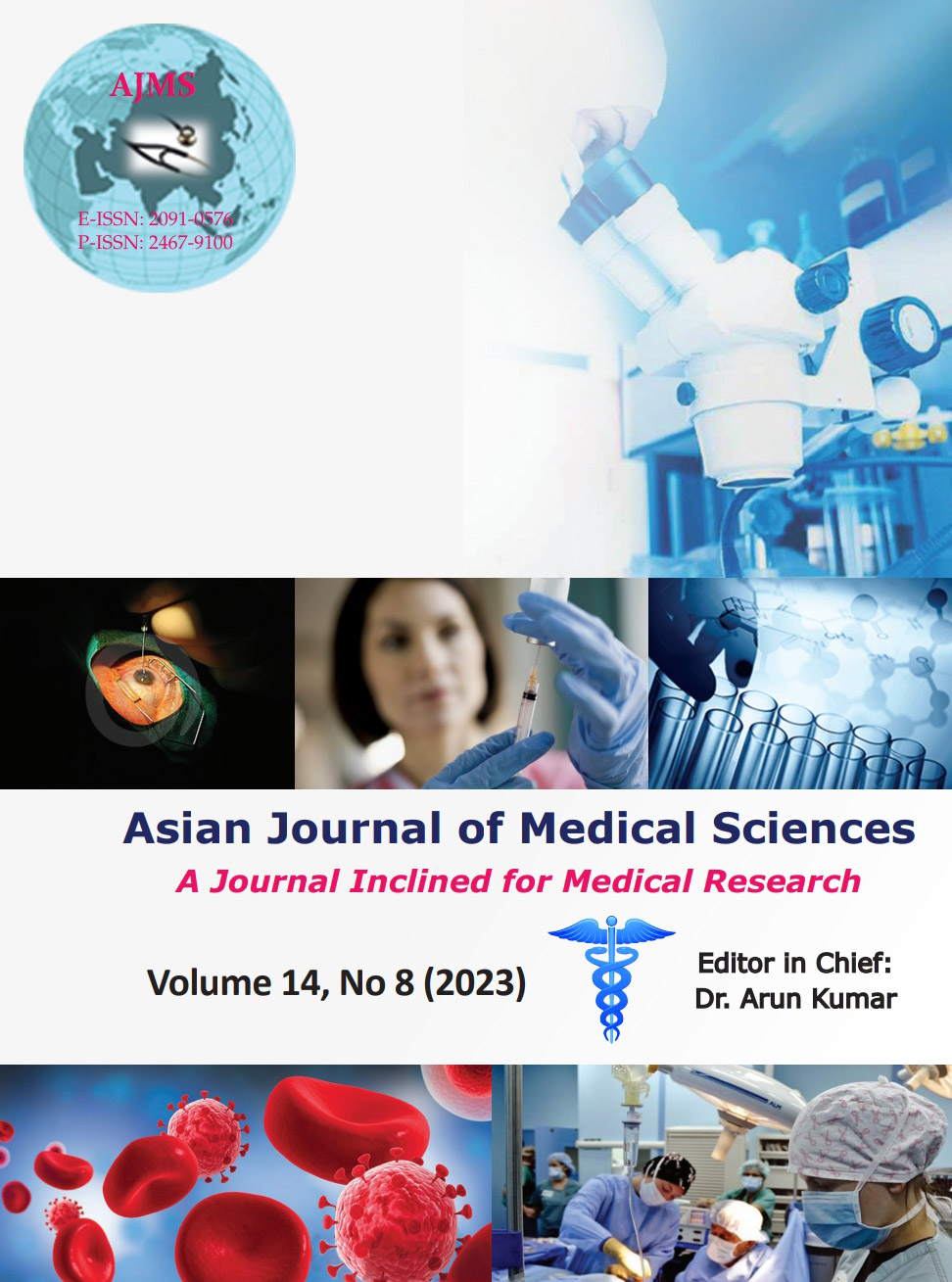Assessment of outcomes of newborns born to mothers with COVID-19 reverse transcription-polymerase chain reaction positivity before delivery in January 2022 ‐ A single center study from Eastern India
Keywords:
Omicron; SARS-COV-2; Neonate; Vertical transmission; COVID-19Abstract
Background: There have been successive waves of SARS-CoV-2 variants since January 2020, the B.1.1.529 (Omicron) variant has led to a third upsurge in India since December 2021. Neonates constitute a vulnerable population and there is limited literature about natural
history, management, and outcomes of Omicron infected newborns.
Aims and Objectives: The study was conducted to study the outcomes among newborns born to COVID-19 positive mothers during the Omicron upsurge.
Materials and Methods: Between December 2021 and January 2022, this study was conducted on newborns born to COVID-19 positive
mothers in a single center during the Omicron upsurge. We investigated the maternal pregnancy complications, methods of delivery, neonatal resuscitation, neonatal conditions, suspicious infectious status, and morbidity based on maternal infections.
Results: A total of 39 neonates were born to mothers with a history of Omicron COVID-19 infected during delivery. None were positive when tested or developed any disease specific symptoms in the postnatal period. Among the neonates, 5 needed admissions in newborn units. Birth asphyxia, transient tachypnea of the newborn and meconium aspiration syndrome was seen along with minor problems such as feed intolerance and hyperbilirubinemia. Rest all had been stable throughout the hospital course. All infants had been developmentally stable on followup up to 6 months post-discharge.
Conclusion: During Omicron COVID-19, newborns had very less complications and we advise giving breast milk to babies with proper precautions along with rooming-in for the lower income countries.
Downloads
Downloads
Published
How to Cite
Issue
Section
License
Copyright (c) 2023 Asian Journal of Medical Sciences

This work is licensed under a Creative Commons Attribution-NonCommercial 4.0 International License.
Authors who publish with this journal agree to the following terms:
- The journal holds copyright and publishes the work under a Creative Commons CC-BY-NC license that permits use, distribution and reprduction in any medium, provided the original work is properly cited and is not used for commercial purposes. The journal should be recognised as the original publisher of this work.
- Authors are able to enter into separate, additional contractual arrangements for the non-exclusive distribution of the journal's published version of the work (e.g., post it to an institutional repository or publish it in a book), with an acknowledgement of its initial publication in this journal.
- Authors are permitted and encouraged to post their work online (e.g., in institutional repositories or on their website) prior to and during the submission process, as it can lead to productive exchanges, as well as earlier and greater citation of published work (See The Effect of Open Access).




